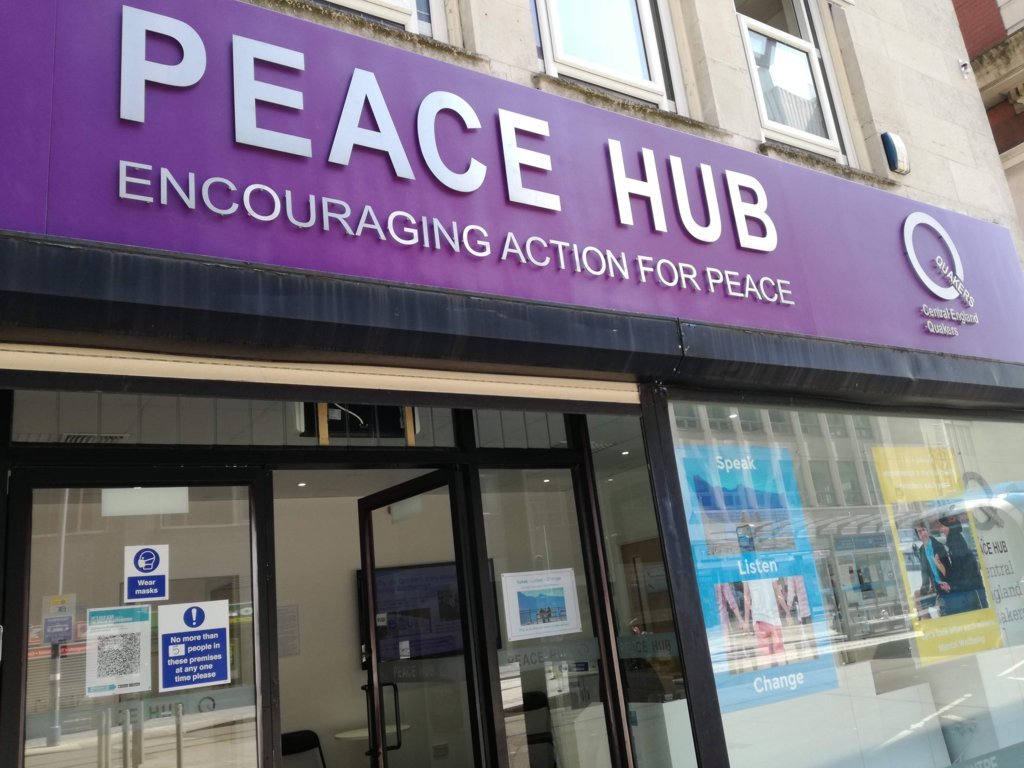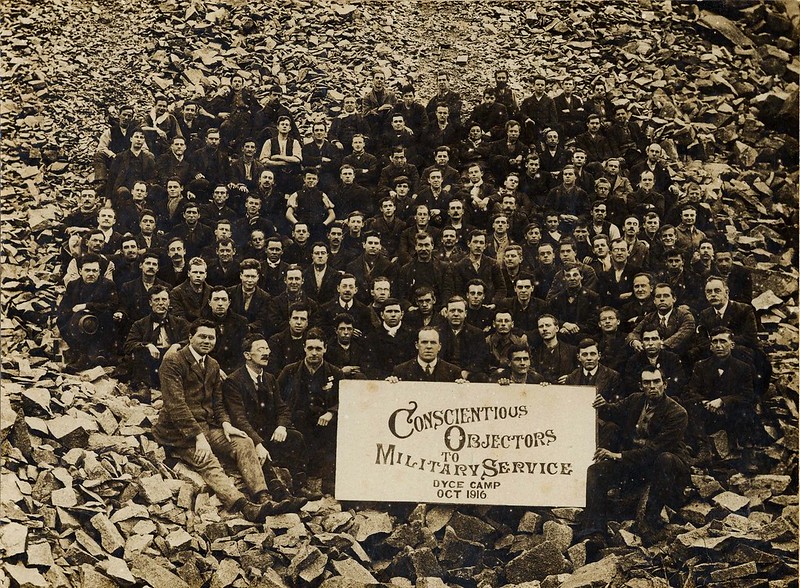Our current theme Taking a Stand is all about exploring freedom of conscience. We are inspired by the people who made sacrifices to establish the right to conscientious objection over a century ago, and by those who are taking a stand today.
Conscientious Objection in the First World War
In 1916, the British government introduced conscription – all men aged 18-40 were compelled to join the armed forces. Many Quakers decided to join the army and fight, but others felt they must remain peaceful – that joining the war would only lengthen the suffering.
Some took on non-combative work, such as helping wounded soldiers and civilians in the Friends Ambulance Unit (FAU) or the Friends Relief Service (FRS). You can learn more about the FAU and FRS in an exhibition hosted at Barnt Green Quaker Meeting House on Friday 9th and Saturday 10th June.
Others felt that this work was still contributing to the war, and refused to participate at all. Along with other pacifists in the No-Conscription Fellowship, many Quakers refused to fight: to kill, in any circumstances, went against their conscience.
They stood up for their right to refuse to kill, and many faced prison. Some were even sentenced to death, and only reprieved at the last minute. The conscientious objectors remained strong, and their efforts helped to establish the right to conscientiously object in UK law – a right we all enjoy to this day.
Learn more about the history of conscientious objection:
- The Men Who Said No explores the experiences and historical context of the men and women who put their lives on hold, first to stop war from happening and then refusing to participate in it.
- World War I resources from Quakers in Britain, including Conscience aimed at primary schools, and Conviction for secondary age.
- Watford’s Quiet Heroes A thirty minute documentary made by Watford Quakers telling the dramatic and largely forgotten stories of some of the men who refused to fight in WW1.
- Voices of Conscientious Objection series of recorded webinars by Conscience delves into the lives and experiences of conscientious objectors, and explores the lessons we can draw from them today.
15th May is International Conscientious Objectors Day: at 1pm you can watch the national ceremony led by the Peace Pledge Union from London.
Check out our follow-up post, highlighting those taking a stand against conscription today, and how you can support them. And pop into Peace Hub to find out more and explore conscientious objection then and now.
Photo: Publicity photograph taken on conscientious objectors at the work camp in Dyce, Scotland in 1916.


